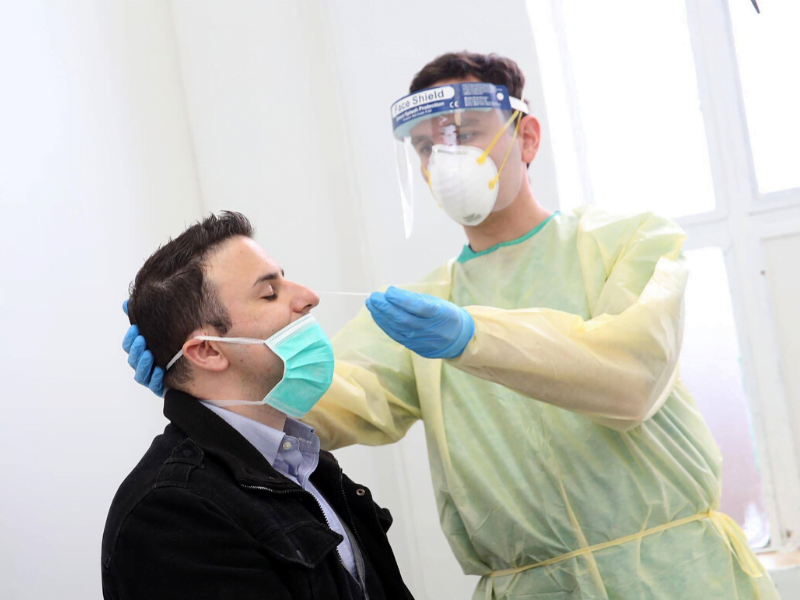COVID-19 is nothing like the flu.
We may all complain of having the winter flu, but very often the term is being used in a colloquial sense to refer to a heavy cold.
Actual influenza is a terrible thing — and COVID-19 is much worse.
So how does this disease affect your body? That’s a surprisingly difficult question to answer. The human body is complicated — especially when it comes to your immune system.
In this second instalment of our pandemic series, we’ll take a closer look at the immune system, its function and how it combats threats.
Let’s begin by dealing with the most common misconception: immunity.
You might think ‘immunity’ means you’re protected from a disease, and that’s often true, to a point. But to an immunologist, ‘immunity’ simply means that an immune system has responded to an infectious agent and triggered a response.
The level of protection this response conveys depends on a number of things, including how many antibodies there are and how effective they are. Like many things in life, we’re talking about degrees, not absolutes.
The same applies to the severity of COVID-19. This is why we’re seeing such a wide range of bodily responses, from feeling really sick but being able to recover at home, to spending months in hospital, and even to death.
Science writer Ed Yong explains how this process works. Remember, it’s your body’s job to detect a threat and do its best to defeat it. But the process depends on both the type of threat and your general health.
For example, it’s more difficult for the very young and the very old to successfully defend themselves against such an attack.
Things get worse when the threat is new and we lack the tools to fight it. At some point, the fight becomes too much for the body. Remember that fighting a threat requires a lot of energy and at some point, the body cannot cope.
It’s clear that some people have a harder time than others. This is the case with anything that attacks the immune system. The difference is that COVID-19 is presenting a range of extreme responses, from a total lack of symptoms to a really and truly terrible time.
It makes this disease much harder to manage. From a public health perspective, it’s an exhausting nightmare. It makes the lives of doctors, nurses and the many healthcare workers a lot more difficult. It also causes anxiety and uncertainty among people.
If one has a very high fever, seeking medical help would be an automatic and entirely reasonable response. But what about symptoms such as loss of smell and taste? These are much more complicated, because they can be caused by a number of things. Ask any sinus sufferer.
Recovery is equally complicated. Looking at statistics provided by the health authorities, it would seem that many people have recovered. However, there has been an ominous silence on how recovery is defined.
We know that bodies respond to threats in different ways. The same applies to recovery. This account by intensive care doctor Jake Suett is revealing. Dr Suett has both treated COVID-19 patients and suffered from the disease himself. He was a healthy young man who should have survived the virus, but instead he became very ill. As he points out, once this pandemic is ‘over’, hospitals will have to deal with long-term chronic illness.
Paul Garner, professor of infectious diseases at the Liverpool School of Tropical Medicine, had a similar story to share. Like many, Prof. Garner wasn’t hospitalized, but that doesn’t mean he had an easy experience, or that his recovery is complete. Indeed, he reports a number of bizarre and often unpredictable symptoms.
In the next article in this series, we’ll take a closer look at the terrible things this disease does to you, starting with your nervous system.













